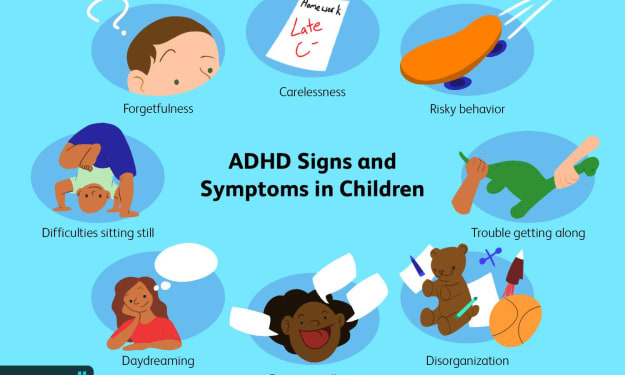Casual Alcohol Use Has Been Linked to Several Major Cancers
Casual Alcohol Use Has Been Linked to Several Major Cancers

Alcohol consumption is a common practice worldwide. However, many people are unaware of the link between alcohol use and cancer. Casual alcohol use has been linked to several major cancers, including liver cancer, breast cancer, colorectal cancer, and head and neck cancer.
The Link Between Alcohol Use and Cancer
Alcohol use can lead to several changes in the body that increase the risk of cancer. These changes include damage to DNA, changes in hormone levels, and inflammation. When alcohol is metabolized by the body, it produces a substance called acetaldehyde, which is known to cause DNA damage.
Alcohol use has been linked to several types of cancer, including:
Liver Cancer: The liver is responsible for metabolizing alcohol, and long-term alcohol use can lead to liver disease, including cirrhosis and hepatitis. Individuals with liver disease have an increased risk of developing liver cancer.
Breast Cancer: Alcohol use has been linked to an increased risk of breast cancer in women. This is thought to be because alcohol can increase hormone levels, including estrogen, which is known to promote the growth of breast cancer cells.
Colorectal Cancer: Heavy alcohol consumption has been linked to an increased risk of colorectal cancer. Alcohol can irritate the lining of the intestines, leading to inflammation and damage to DNA.
Head and Neck Cancer: Alcohol use has been linked to an increased risk of head and neck cancer, including cancers of the mouth, throat, and larynx. This is because alcohol can irritate the lining of the mouth and throat, leading to inflammation and damage to DNA.
Other cancers that have been linked to alcohol use include esophageal cancer, pancreatic cancer, and stomach cancer.
The Risks of Casual Alcohol Use
Many people believe that casual alcohol use, such as having a glass of wine with dinner, is not harmful. However, even moderate alcohol use can increase the risk of several types of cancer. According to the American Cancer Society, even small amounts of alcohol use can increase the risk of breast cancer in women.
Heavy alcohol use is also a significant risk factor for several types of cancer. Heavy alcohol use is defined as consuming more than three drinks per day for men or more than two drinks per day for women.
Alcohol use can also lead to other health problems, including liver disease, pancreatitis, and heart disease. In addition, alcohol use can lead to addiction, which can have significant negative impacts on an individual's life.
Treatment for Alcohol Addiction
If you or a loved one is struggling with alcohol addiction, it is important to seek help from an alcohol de-addiction centre. These centres offer a range of treatment options to help individuals overcome their addiction and lead a healthy, sober life.
The first step in treating alcohol addiction is detoxification, which involves removing alcohol from the body. This can be a challenging process, and it is important to seek medical supervision to ensure a safe and comfortable detoxification process.
After detoxification, individuals with alcohol addiction can benefit from therapy and counseling. Therapy can help individuals address the underlying causes of their addiction and develop coping strategies to prevent relapse.
In addition to therapy, medication can also be useful in treating alcohol addiction. Medications such as naltrexone and acamprosate can help reduce alcohol cravings and prevent relapse.
Lifestyle changes, such as regular exercise, a healthy diet, and good sleep hygiene, can also be helpful in maintaining sobriety.
Conclusion
Casual alcohol use has been linked to several major cancers, including liver cancer, breast cancer, colorectal cancer, and head and neck cancer. Even moderate alcohol use can increase the risk of cancer, and heavy alcohol use is a significant risk factor for several types of cancer. In addition to its cancer risks , alcohol use can also lead to other health problems and addiction.
If you or a loved one is struggling with alcohol addiction, it is important to seek help from an alcohol de-addiction centre. These centres offer a range of treatment options, including detoxification, therapy, medication, and lifestyle changes, to help individuals overcome their addiction and lead a healthy, sober life.
Prevention is also key when it comes to reducing the risk of cancer associated with alcohol use. The American Cancer Society recommends limiting alcohol consumption to no more than one drink per day for women and no more than two drinks per day for men. It is also important to avoid binge drinking, which is defined as consuming four or more drinks in a single occasion for women and five or more drinks in a single occasion for men.
In addition to limiting alcohol consumption, maintaining a healthy lifestyle can also help reduce the risk of cancer. This includes regular exercise, a healthy diet, and avoiding smoking.
In conclusion, the link between casual alcohol use and several major cancers cannot be ignored. It is important to be aware of the risks associated with alcohol use and to take steps to reduce those risks, including limiting alcohol consumption and seeking help for alcohol addiction. By doing so, individuals can take control of their health and reduce their risk of cancer and other health problems.





Comments
There are no comments for this story
Be the first to respond and start the conversation.